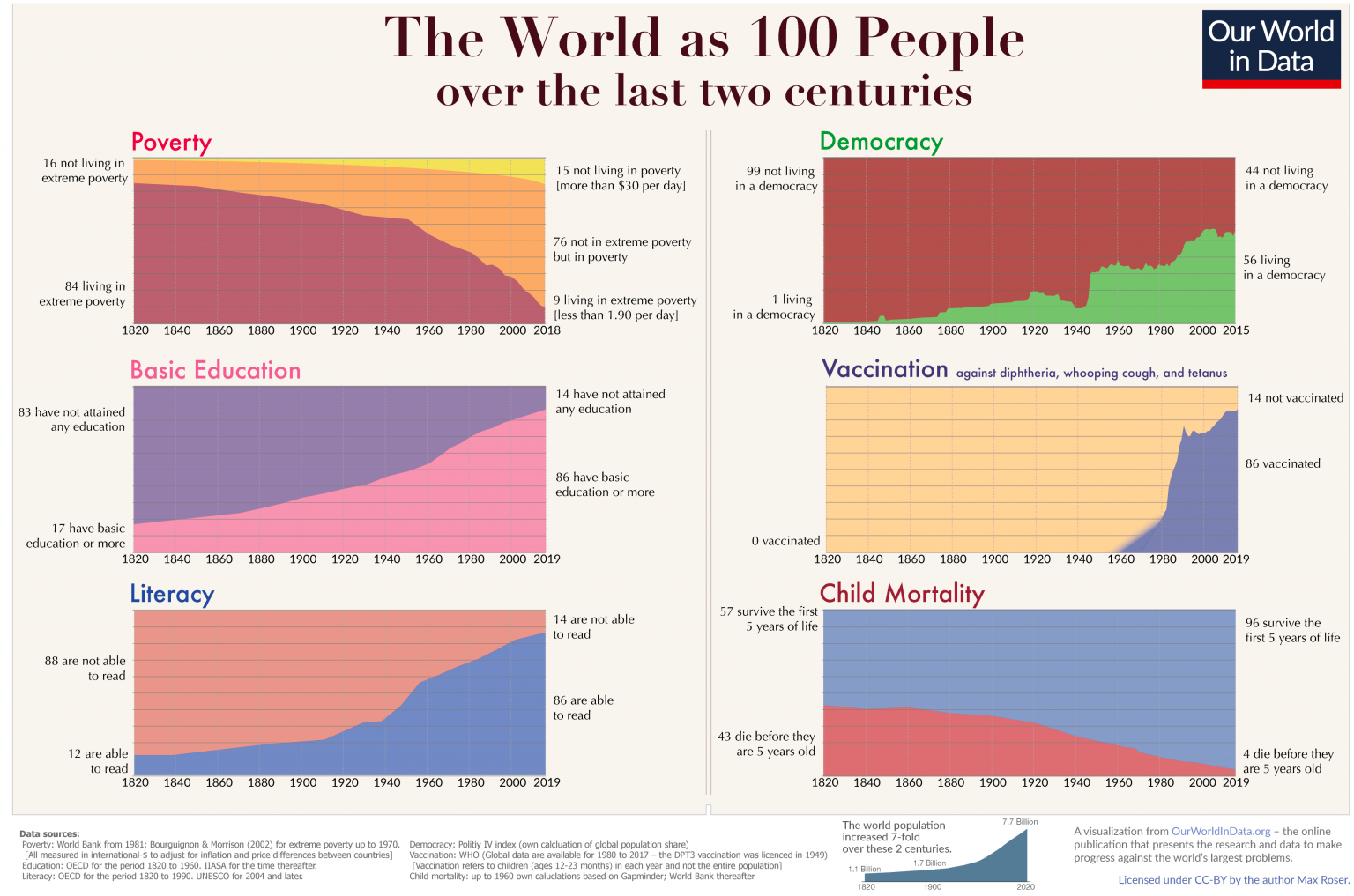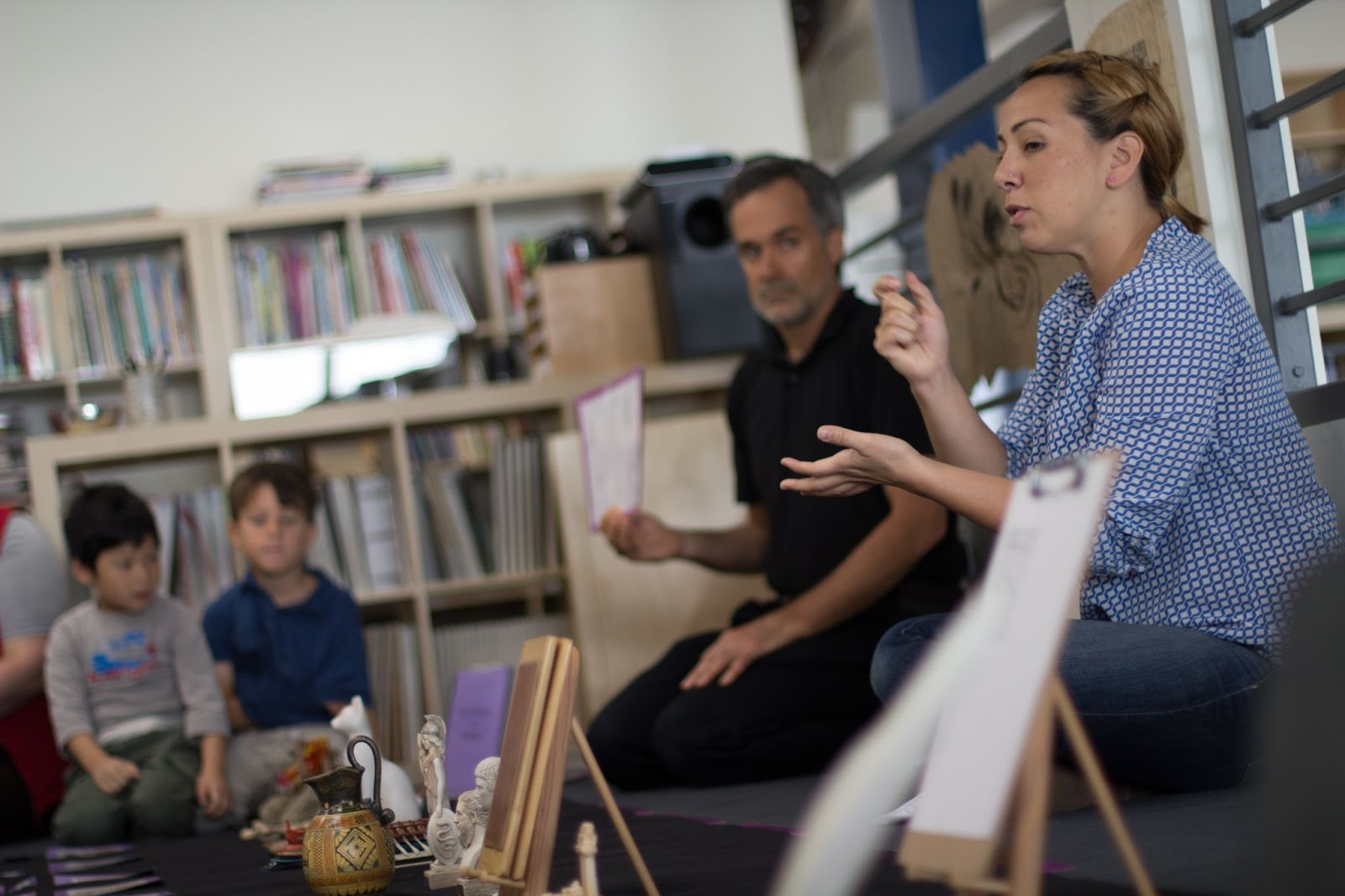A little while ago, one of my friends shared a video on Facebook. It shows her toddler daughter carefully cutting a strawberry to share as a snack with her friends in her Montessori preschool classroom. Her face is focused. She’s in the moment. Her whole little being concentrates on mastering this task. The setting is beautiful: There are child-sized tools that make this task possible for her; she’s wearing an apron in the same red as the tray and the porcelain bowls; and there are the strawberries, red, ripe, ready to be eaten.

I used to work at Montessori schools. Whenever I’d visit a classroom to observe, I was struck by how it made a certain type of human spirituality visible. Children and their activities are taken seriously in Montessori. There is a reverence toward “work”—that is, purposeful action taken in pursuit of goals. The goals may be small and local—like building a tower out of pink cubes, solving a math problem with groups of beads, or cutting a strawberry. In most settings, what kids do is called play. It’s kindly smiled upon by adults. In Montessori, though, teachers honor this purposeful action by calling it work.
It’s an attitude toward work and building that I think is sorely lacking in our world today.
In America and in much of the West, we take for granted that grocery stores will have strawberries available year round—and not just strawberries, but a brightly colored display of all kinds of fruits and vegetables, and spices from all over the world. We buy vanilla ice cream to go with our strawberries and don’t think twice about it. After all, it’s just “plain vanilla”, right? Yet vanilla is an exotic spice that was once reserved for royals! And ice cream? If you transported someone from 200 years ago to today, they would think it was magic to have ice cream in the middle of the summer (available to all, not just royalty!)
Most Americans don’t pay much attention to the full shelves in grocery stores. I do. I grew up in West Germany during the Cold War. My parents once a year drove across the heavily fortified border so we could see our relatives in the East. That’s where I first experienced empty shelves in many stores. At a barbeque, one of my cousins told me he stood in line for three hours to get a rare and precious ingredient: ketchup! At ten years old I became very aware that plenty can’t be taken for granted. The magic that gives us full shelves can fail.
In normal times, most of us in the developed world are like fish surrounded by the water of abundance: Full shelves are so normal that we don’t even see them. We did notice, briefly, in the spring of 2020. Remember the big toilet paper shortage?! COVID shook our world: we were annoyed, fearful, and confused. If we thought about the cause of the empty shelves at all our answer was probably quite shallow: many just blamed hoarders for empty shelves.
Yet it is the plenty that is the historical abnormality. What needs to be explained is not so much why shelves become empty during a pandemic shutdown (hint: it’s not just hoarders!). What needs explaining is the abundance itself.
Creating the abundance we take for granted today—of which fresh produce in grocery stores is just a small sliver—is, I think, humanity’s greatest achievement. This transformation has rightly been called the Great Enrichment: For millennia, humans everywhere lived in poverty and died at a young age. And then things changed rapidly for the better, on a global scale, as illustrated so compellingly in the history of global living conditions at Our World In Data.

It’s the invisible work and the building that was necessary to give us this plenty that I wish people were more aware of and grateful for. To bring us our fresh strawberries in the cold of winter or vanilla ice cream in the heat of summer many labored unseen to us. Unseen are the farmers who grow the food and the grocery store merchants and supply chain managers who bring it to us, like magic, every day. Unseen and unappreciated, too, are the inventors and builders of the technology that made transporting fresh and frozen food possible—the people who figured out how to create cold artificially, the inventors of steam engines, the builders of railroads and warehouses.
I wonder what would happen to our sense of value, our spiritual connection to the world around us, and to those who create it if all of us were more mindful of the hidden magic. What would happen if we started to notice the water of abundance around us and appreciated the invisible work that brings it to us day after day? What if we applied mindfulness to grocery shopping specifically—and to living amidst the wonders of the modern world more broadly?
Dr. Maria Montessori, the inventor of the Montessori method that empowered my friend’s toddler girl to so confidently prepare her strawberries, writes thus:
"What is necessary is that the individual from the earliest years should be placed in relation with humanity. There is no love in our hearts for the human beings from whom we have received, and are receiving so much in bread and clothing, and numerous inventions for our benefit. We take and enjoy all that is done for us without gratitude ... Perhaps we teach the child to thank God and pray to Him, but not to thank humanity, God's prime agent in creation; we give no thought to the men and women who daily give their lives that we may live more richly. ... We write and read, and the child can be taught who invented writing and the instruments wherewith we write, how printing came and books became so numerous. Every achievement has come by the sacrifice of someone now dead. [...]
Let us in education always call the attention of children to the hosts of men and women who are hidden from the light of fame, so kindling a love of humanity; not the vague and anaemic sentiment preached today as brotherhood, nor the political sentiment that the working classes should be redeemed and uplifted. What is most wanted is no patronizing charity for humanity, but a reverent consciousness of its dignity and worth."

In Montessori schools, children learn to appreciate this hidden work early. They are introduced to the Fundamental Needs of Man, both material (food, shelter, communication) and spiritual (art, community). They then explore how people across ages and cultures have satisfied these needs. My kids attended Montessori through elementary school, and I vividly remember observing as their teachers dramatized with “Great Stories” how the modern world came to be. In one of these stories, for example, the teacher shared how the invention of writing by the ancients gave us access to the thoughts of those who came before us. She then brought in moveable type to make real the invention of printing by Gutenberg and discussed the spread of knowledge it made possible. Books now were no longer expensive, found only in cloisters. They were accessible to all! That day, my kids were bubbling over after school, talking about this history of writing, and how their iPad is just the final step in a long story of invention!
Montessori children thus are taught to thank the invisible creators. They appreciate how much work has gone into making our modern world possible. Their love for humanity is kindled!
But what about us adults who didn’t benefit from a Montessori education?
Helping adults re-discover the wonders behind our modern world is one of our goals at The Roots of Progress, a not-for-profit I recently joined.
Jason Crawford, our founder, has been writing for years about the history of human progress, making accessible to all curious people the stories of human invention and work that brought us everything from iron and steel to cement to the bicycle. He has argued that studying progress is a civic duty because ignorance of the history of progress leads to bad policy decisions that put our flourishing at risk.
As I read about the history of human progress what struck me most was how it uplifted my spirit. I remember as a teen in the 1980s reading excerpts of Paul Ehrlich’s The Population Bomb and seeing images of starving children with distended bellies in Africa. When I read Jason’s essay on artificial fertilizer, Turning Air Into Bread and Our Daily Bread, Norm Borlaug’s biography, I felt immense gratitude for the heroes of the green revolution who brought nutrition to billions and defused the population bomb. I invite you to gain “industrial literacy” and be inspired by invisible heroes. Become aware of the water of abundance and give gratitude to those who give it to us. And then take it a step further: reflect on how your work, too, contributes to human flourishing.
And the next time you go grocery shopping, buy some strawberries and vanilla ice cream. Pause to give silent thanks to the men and women hidden from the light of fame who made this shopping trip possible. Then enjoy your treat and fill your mind with a reverent consciousness of humanity’s dignity and worth. Bon appétit!
Post background: This is a post I wrote as part of participating in Write of Passage. It's written for a general audience that doesn't know much about progress yet. We're exploring Write of Passage as a potential partner for the 8-week Roots of Progress writing intensive we plan to launch this fall. Week one has been very interesting!
